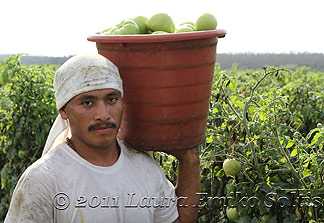
Dr. King’s words as true today as they were half a century ago, ring out as powerful lesson for Publix, Ahold, supermarket industry…
Dr. Martin Luther King Jr. would have been 82 years old today had his life not been cut short by an assassin’s bullet in Memphis, TN, in 1968. Dr. King was in Memphis at the time to support striking sanitation workers, a reflection of the turn his work had taken in the later years of his life, as he shifted his organizing focus increasingly toward the fight to end poverty and reduce economic inequality.
Dr. King’s remarkable life and words provide immeasurable inspiration to those who continue to fight for economic justice today. But more than that, they provide invaluable insight, as well, for human rights activists seeking to understand the forces that stand in the way of a more just society today. In honor of his birthday, we wanted to briefly reflect on two of Dr. King’s quotations that serve to cast light on, 1) the roots of resistance to the Campaign for Fair Food by leading supermarket companies, like Publix, and on 2) the abiding determination to fight for real, lasting change that drives workers in Immokalee and Fair Food activists across the country.
In 1958, Dr. King published a reflection on the successful Montgomery bus boycott, entitled “Stride Toward Freedom: The Montgomery Story.” In it he wrote:
|
“Men often hate each other because they fear each other; they fear each other because they don’t know each other; they don’t know each other because they can not communicate; they can not communicate because they are separated.” |
His words may well provide a useful window into the thought process of Publix executives who, for more than two years now, have refused not only to work with the CIW to address human rights violations in the company’s supply chain, but even to sit with representatives of the CIW in respectful dialogue.
 Why would Publix executives refuse to meet with the CIW? It is probably safe to say that the executives who run Publix have never spoken to an actual farmworker. Likewise, it is a virtual certainty that the executives who run Publix don’t have any friends or family who pick tomatoes for a living. The lives of Publix executives and of the men and women who pick the produce sold in Publix’s stores couldn’t be more separate, and more unequal.
Why would Publix executives refuse to meet with the CIW? It is probably safe to say that the executives who run Publix have never spoken to an actual farmworker. Likewise, it is a virtual certainty that the executives who run Publix don’t have any friends or family who pick tomatoes for a living. The lives of Publix executives and of the men and women who pick the produce sold in Publix’s stores couldn’t be more separate, and more unequal.
Yet the same could be said of all of the executives at all of the corporations that the CIW has dealt with over the past ten years. Like Publix, those executives had never met a farmworker before meeting with the CIW. Yet unlike Publix, those executives eventually agreed to enter into a dialogue with CIW representatives based on mutual respect, and those talks have resulted in nine agreements with multi-billion dollar food companies — companies just like Publix — since 2005.
So what makes Publix different? Perhaps, as Dr. King wrote, Publix’s fear of the unknown has, for whatever unknowable reason, tipped over not necessarily into hate, but into disdain. Fear, born of ignorance, becomes disdain, and that disdain becomes its own obstacle to overcoming the separation that keeps Publix executives and Immokalee farmworkers from joining forces to clean up a notoriously brutal industry of which they are both a part.
Which brings us to the second quotation we wanted to share today. It comes from a meeting of the Montgomery Improvement Association, the community organization that led the successful bus boycott. At the first mass meeting of the MIA, Dr. King told those gathered:
|
“You know my friends, there comes a time when people get tired of being trampled by the iron feet of oppression … If we are wrong, the Supreme Court of this nation is wrong. If we are wrong, the Constitution of the United States is wrong. And if we are wrong, God Almighty is wrong. If we are wrong, Jesus of Nazareth was merely a utopian dreamer that never came down to Earth. If we are wrong, justice is a lie, love has no meaning. And we are determined here in Montgomery to work and fight until justice runs down like water, and righteousness like a mighty stream.” |
We, too, are determined to “work and fight until justice runs down like water, and righteousness like a mighty stream”. We, and our allies across the country will fight, and continue to fight, until we win.
Today, we are on the threshold of unprecedented transformation in the Florida tomato industry, and the only thing standing in the way, the only remaining obstacle to that change, is the supermarket industry. Publix executives — and executives throughout the supermarket industry — would do well to put aside their disdain and join us in that process. Now is the time.
Happy birthday, Dr. King. We will never give up your fight.
